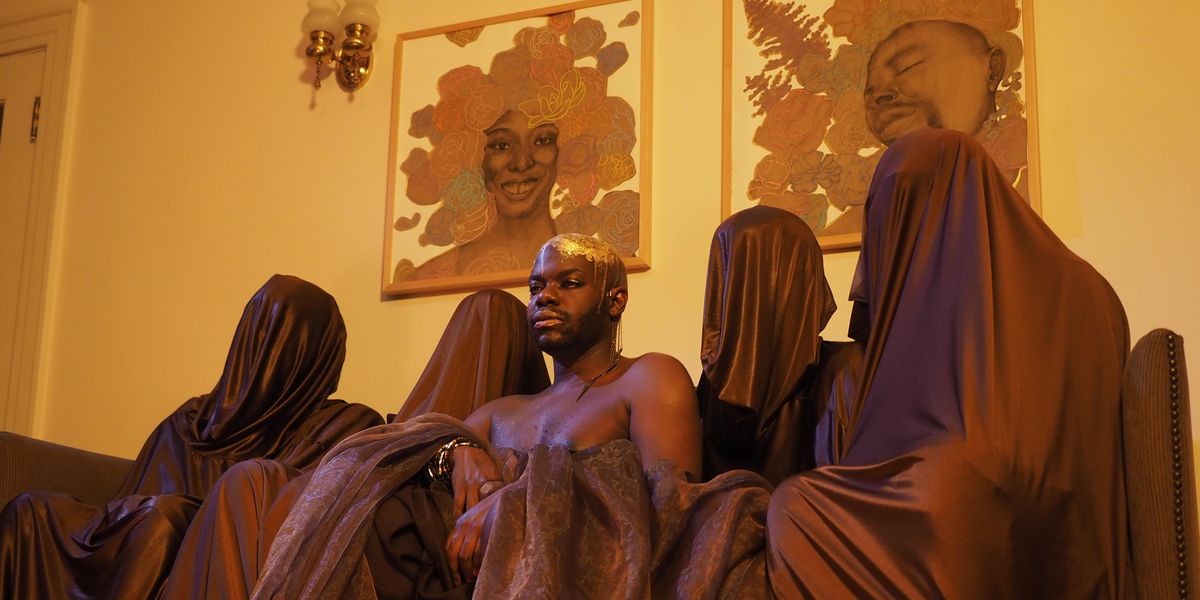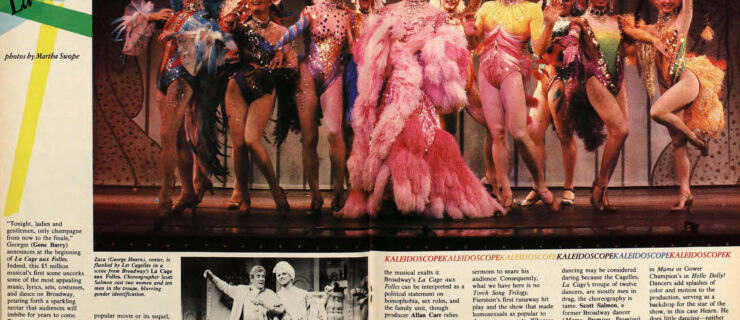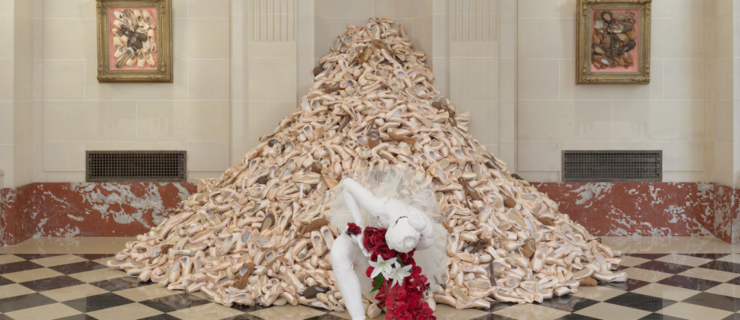Interdisciplinary Artist Jaamil Olawale Kosoko Talks Precarity and Presenting His "Curated Life" as Work
Raw experience had already schooled Jaamil Olawale Kosoko in navigating the risks of being a Black, queer, experimental performance artist when the perfect storm of 2020 hit. Putting his curatorial skills to work, last spring and summer he transformed the New York, Berlin and Zurich premieres of Chameleon, an intense reconnoiter probing the inner spaces of his life, into ephemeral, multilayered cyber events of grief and healing. Through conversations, filmed performance, interviews, workshops and lectures, we were invited to join him, to witness human loss and the potential for metamorphosis.
His current projects reflect that multifaceted approach: teaching his signature class, The Radical Imagination, as a lecturer at Princeton University; hosting his weekly international gatherings and workshops, “Radical Reimagining,” via Discord; being a resident artist with the Wexner Center for the Arts; and working on a children’s book.
You wear so many hats: performance artist, poet, public lecturer, university teacher, workshop leader, curator. How do these roles intersect?
Early on in my career, I had to constantly contend with the precarity of making a living, which demanded that I live a post-disciplinary life. I’m grateful to have arrived at a point now where, after a lot of hard work and creative conjuring, much of that precarity has lessened. Living a hyphenated existence is required to make a living as a Black artist today, especially in a country that would rather render artists as businesses and less as fully complex, multifaceted human beings.
My training as an improviser, curator, facilitator and writer prepared me to deal with this moment of compounding pandemics. It forced me to figure out how I might create an international economy around my thinking and practice. It meant finding certain cracks in the system as a means of accessing the kinds of creative spaces I desire to be seen in.

Has the pandemic required you to reach into new formats?
While much of the technology used in my work isn’t new, I think I’ve found unique ways of engaging with it. Much of my early work was very DIY. That messy, grungy aesthetic translates into the ways I engage creatively both onstage and online. I love pulling back the layers and exposing the hidden relics and histories beneath the masking of live performances.
You’ve described your multilayered performance pieces as your “curated life.”
My strategy since graduating from university was to slowly build a community around my practice, but it wasn’t until recently, with the support of major presenting institutions and funders, that I’ve had the resources to really do that through collaboration, resource sharing, advocacy and archival distribution. I approach my Chameleon project curatorially as much as I do artistically, using this project as a way to allow the production of staged experience to slip out of the gallery or theater and into my life. My focus now is on living as creative a life as possible and documenting the process through the sharing of staged and/or digital interventions.
“I don’t feel like I’ve made a work until the theater has been destroyed!” You said this in an interview recently. Talk about this.
There is something about exposing the mess and messiness of living in the world that feels important to me to share within the theatrical frame. I think because I grew up in a household with parents who were unable to parent, I inherited a lot of baggage. So now, I let out much of that baggage in unexpected, illogical ways onstage because, in some sense, that’s the kind of theater I understand the most.
What do you plan to do with the time afforded you by the recently awarded Pew Fellowship?
Rest.




